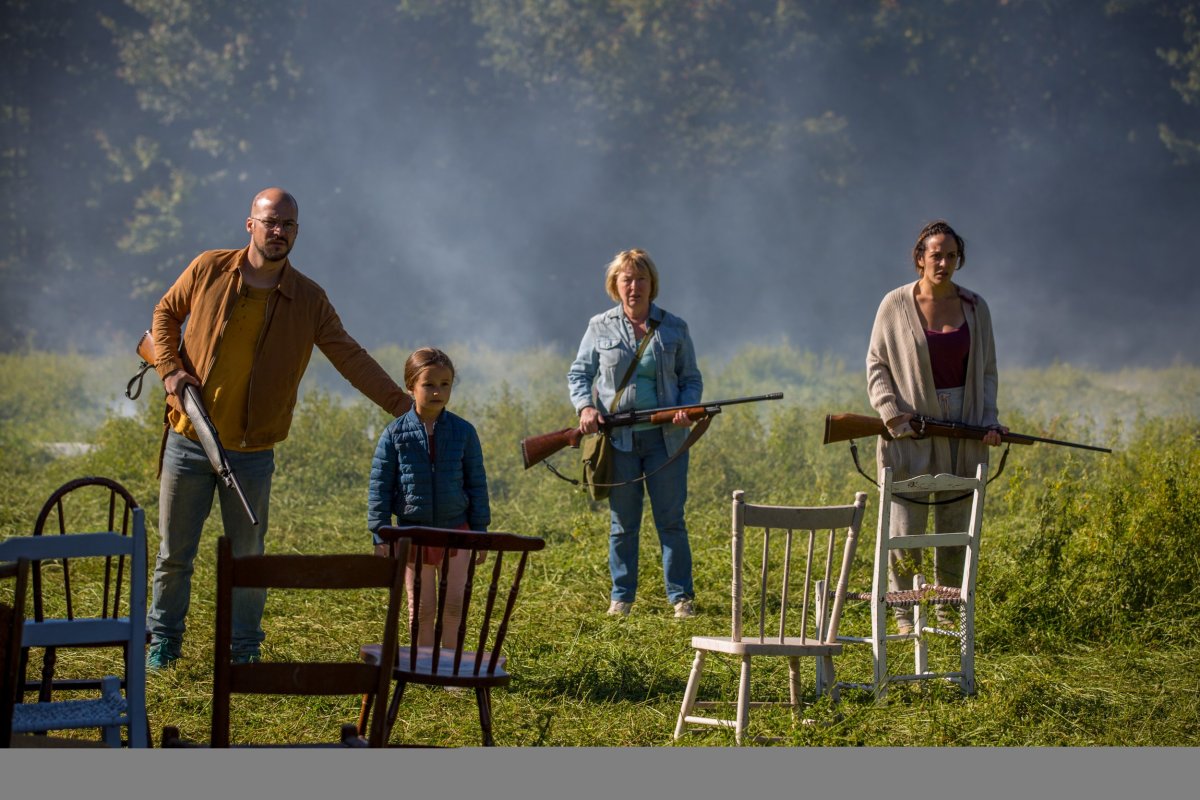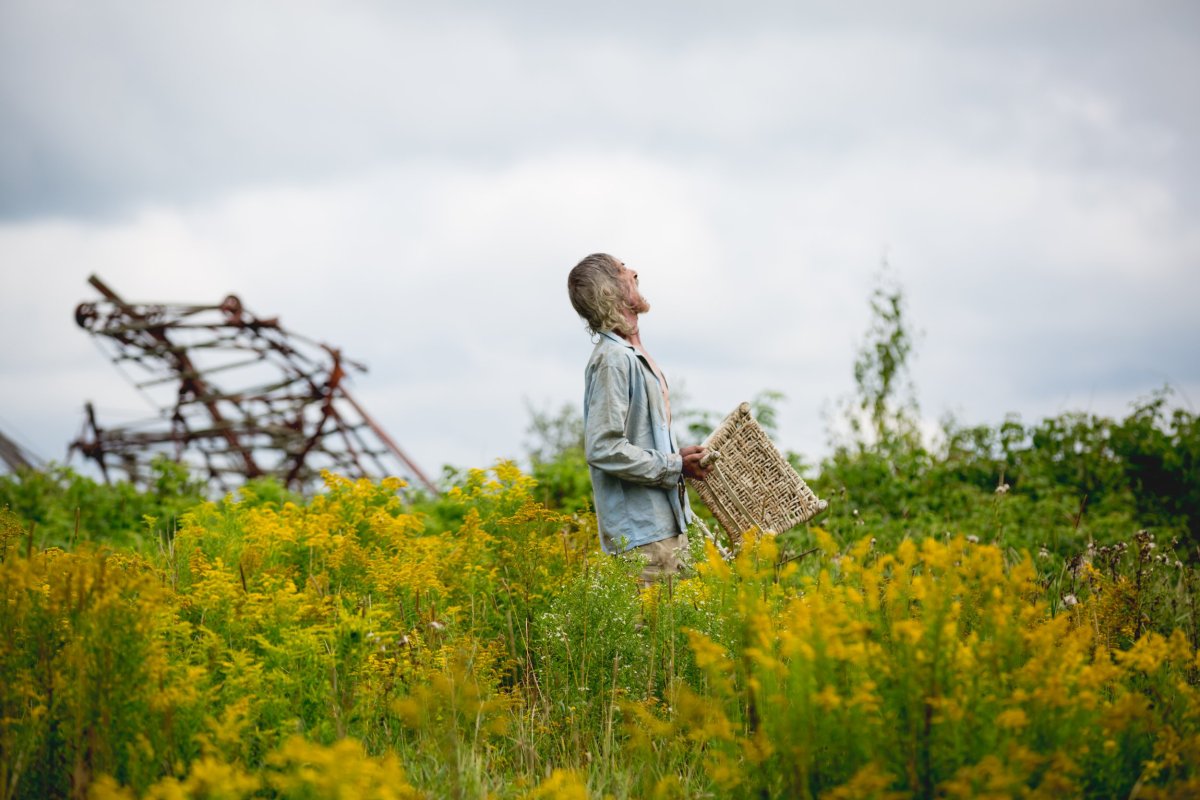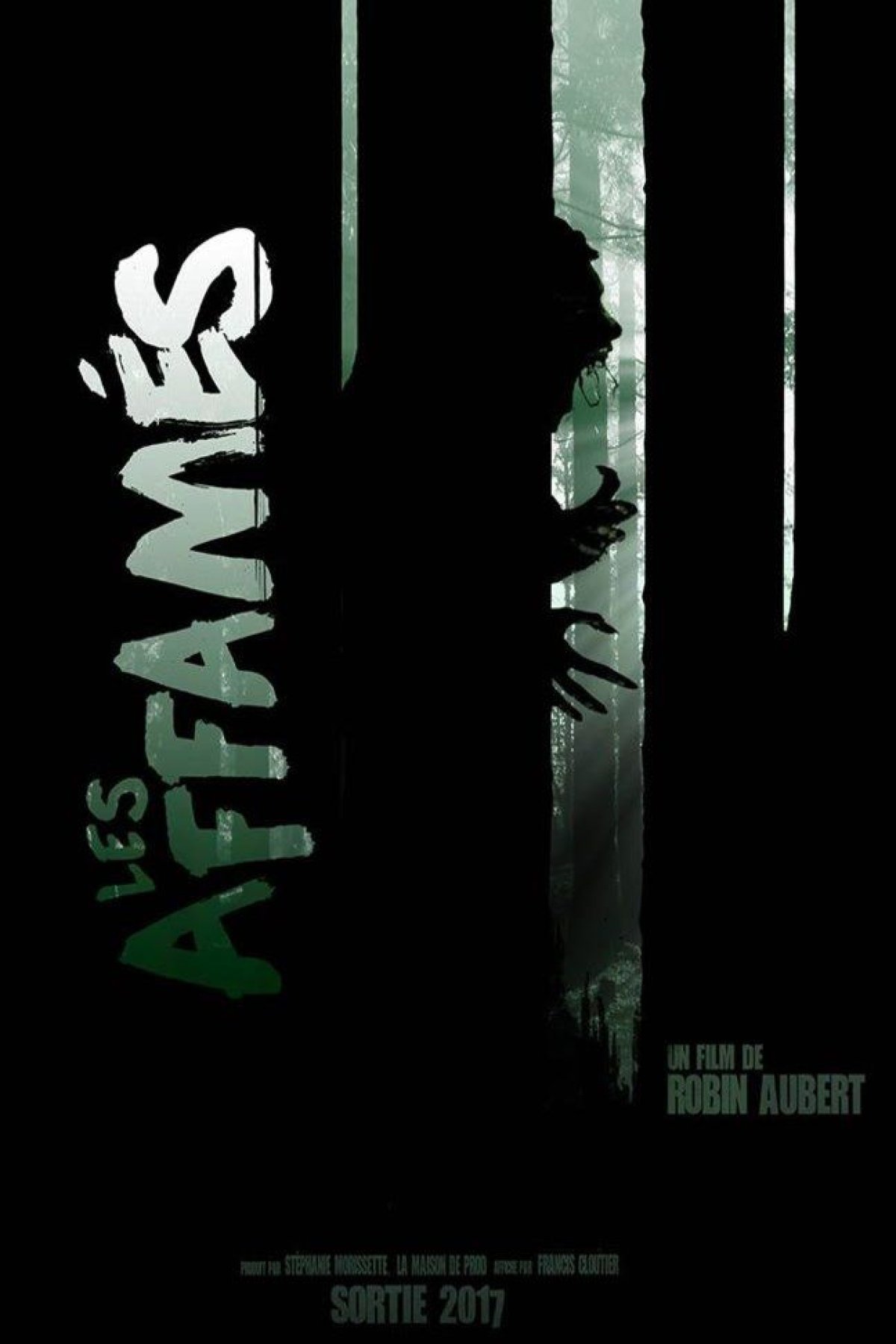Netflix is already home to arguably the best zombie movie made in years—South Korea's Train to Busan—but on March 5, the streaming platform added Quebec's stellar Les Affamés to its collection. Les Affamés (Ravenous, in English) is an undead romp so inventive and heartfelt that it might raise the genre from the grave.
The early 21st century was a great time for zombies. Britain offered up two memorable entries—Danny Boyle's 28 Days Later (2002) and Edgar Wright's Shaun of the Dead (2004). Each paid homage to the genre and put new twists on it. Shaun, a love-letter to George A. Romero's zombie films, hit theaters the same year as Zach Snyder found box office success with his remake of Romero's masterpiece, Dawn of the Dead. And from there, the zombies were off and lumbering (or running, depending on what movie you watched)—from Will Smith's I Am Legend (2007), a workable zombie/vampire hybrid, to two zombie comedies (zom-coms), 2009's Zombieland and Pontypool.
But the craze didn't last. AMC's The Walking Dead began in 2010, signaling that zombie media had finally reached a fever pitch. As the show declined in quality, zombie stories began to feel less profound. In 2013, Brad Pitt starred in an impossibly boring adaptation of Max Brook's World War Z, and it seemed the undead shtick was, well, dead.

What might bring zombie stories back to life? A more diverse group of people making them. And if creators use their deeper, culturally-rooted fears to enhance their horror films, as Romero once did, that could help, too. His pioneering 1968 film Night of the Living Dead was called everything from an exploration of the Cold War to commentary on race relations in 1960s America. Ten years later, Romero's original Dawn of the Dead was seen as both a critique of post-Watergate America and the culture's out-of-control commercialism.
Whatever Romero's intentions, a lesser zombie flick wouldn't have supported that—or any—level of analysis. "My stories are about humans and how they react, or fail to react, or react stupidly," he explained to Vanity Fair in 2010. "I'm pointing the finger at us, not at the zombies."

Quebecois writer-director Robin Aubert taps into that Romero tradition with Les Affamés.
In the film, it's not the horde of flesh-hungry creatures that feel most horrifying. Instead, the terror comes when the heroes realize the undead are building a frighteningly illogical and unfamiliar culture of their own. As the zombies stand ominously on the horizon, watching as the few humans left band together for survival, they build towering piles of human-adorned objects—chairs, toys, and appliances—and wait in circles of reverence around these towers, worshipping them for reasons that are never explained.

Les Affamés succeeds because it taps into an existential fear that goes beyond simple life or death. For those who live on the Quebec's farms and dairies, the constant threat of cultural erasure leaves even the youngest citizens with a sense of defensive pride. In fact, many Quebecois people still support seceding from the rest of Canada, and the political movement toward independence has received new blood in 2018.
"Imagine the Quebec homeland being overrun by a hegemonic tribe with its own culture, and its own irresistible method of converting the inhabitants into beings such as themselves," The Globe and Mail wrote in October, when Aubret's film entered the festival circuit. "That is the worst Québécois nightmare."
Whether the fear of the outsider is warranted or not, that cultural paranoia gives a rich subtext to Aubret's film. One of his heroines, Tania (Monia Chokri), carries an accordion on her back and uses a map of Quebec to wipe blood off the keys. Our French-speaking heroes write off the bizarre towers and zombie proto-religion using the term "câlisse," a profane reference to the Holy Sacrament, or the blood of Christ in a chalice.
The zombies aren't just frightening to these people—their very presence on the land is an insult.
At some point, the question of the zombies's intelligence becomes too disturbing for the human characters to bear, and they simply drop the subject. As The Globe and Mail put it, "There's a danger, however, in knowing too much about your colonizers. You might become more like them, and less like yourself."
Les Affamés mines that disconnect for scares as the heroes decide whether to fight being overrun by zombies, or simply leave the idyllic land they've inhabited for decades. It's a dread choice that certainly resonates with Quebecois viewers. But it's also a universal one. And it's that cross-cultural commonality that makes a genre film like this one resonate beyond the credits.
Les Affamés is available to stream now on Netflix.
Uncommon Knowledge
Newsweek is committed to challenging conventional wisdom and finding connections in the search for common ground.
Newsweek is committed to challenging conventional wisdom and finding connections in the search for common ground.
About the writer
Emily is a culture and entertainment writer living in Manhattan. Previously, she ran the culture section at Inverse and has been published in The Daily ... Read more
To read how Newsweek uses AI as a newsroom tool, Click here.








